Iran election: Economy emerges as critical factor
- Published
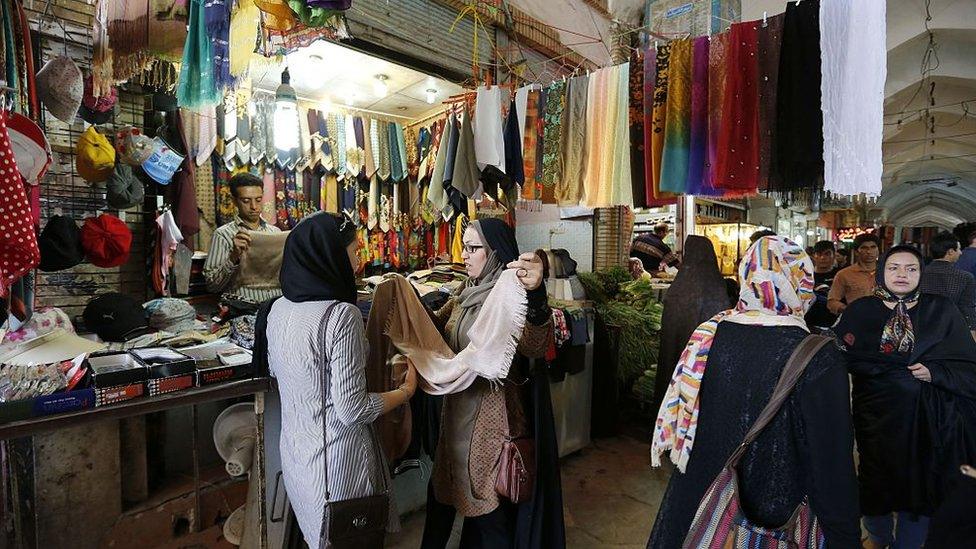
Many ordinary Iranians have not yet felt the benefits of sanctions relief
As polling day draws closer in Iran, the state of the economy has become the key battleground for the six candidates running for president.
With rampant unemployment, some are promising jobs and others cash hand-outs as they appeal for votes.
Given his record, winning this election ought to be easy for incumbent Hassan Rouhani - but his re-election is by no means a certainty.
Mr Rouhani managed to strike an historic deal in 2015 with world powers over Iran's controversial nuclear programme, resolving a long-standing crisis with the West.
International sanctions were lifted as a result, but average Iranians say they do not feel the economic benefits in their daily lives.
"For the past two years, many have stayed away from the property market, first with the hope prices would fall post-sanctions and now for the fear of what happens in the elections," says Ali Saeedi, a real estate agent.
"Many of my colleagues left their jobs because the market is dead," Mr Saeedi, 33, says.
Iran's housing sector shrank 13% in the year to March 2017, while the country's overall economy grew by almost 6.6%, estimates International Monetary Fund.
That growth came mostly from increased oil exports following the lifting of sanctions.
Benefits pledge
For young Iranians like Ali Saeedi there is no shortage of promises these days.
Tehran Mayor Mohammad Baqer Qalibaf, who is running for president, says he will create five million jobs in four years, if elected.
Iran's highest record in the past four decades has been creating 600,000 jobs a year.
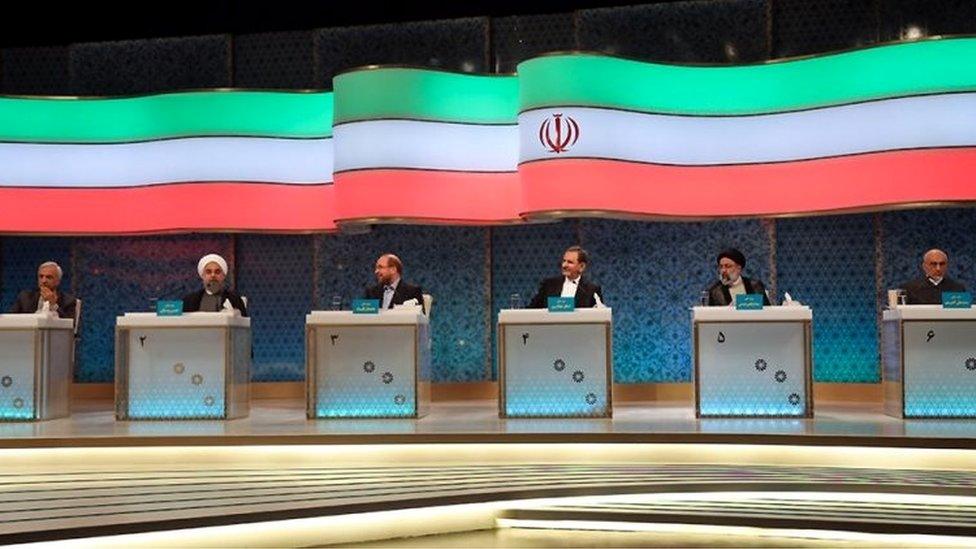
Promises of jobs and hand-outs are being made to woo poorer voters
Iran's current unemployment rate stands at 12.7%, up 1.7% over the past year. That puts the number of those with absolutely no employment at 3.3 million.
But when it comes to young people, one in every three of those aged 15-24 is jobless. In that age group, every other woman is unemployed.
For those without a job, Mr Qalibaf is also offering a 2.5m rial ($66) monthly unemployment benefit, a first in the 38 years since since the Islamic Revolution.
The price tag for this election promise alone is a staggering $2.6bn. Mr Qalibaf does not say where he will find the money, nor how he will manage to double Iran's job creation record.
Bidding for votes
Ebrahim Raisi, another conservative candidate, topped Mr Qalibaf's promise with a bid of his own, pledging to create six million jobs.
The 57-year-old cleric and former prosecutor, who runs the Shia shrine in north-eastern city of Mashhad - and its financial empire - also promised to triple cash hand-outs for the poorest 30% of Iranian population.
As compensation for removing fuel subsidies, Iranians receive 455,000 rials a month. Tripling that stipend for 24 million people would amount to $3.5bn a year.
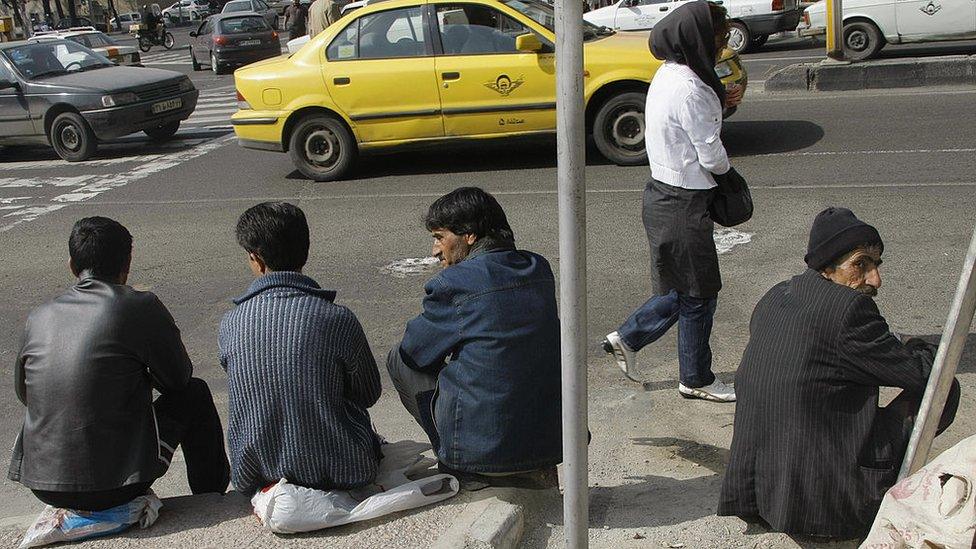
Unemployment has risen in Iran over the past year
Mr Raisi, too, has failed to specify where that money will come from.
"It's as if they are bidding in an auction. The economy does not work like that," says Ahmad Alavi, an Iranian economist based in Stockholm, Sweden.
"Those words are attractive, but what the populist candidates forget is that memories of Mr Ahmadinejad are fresh."
Former President Mahmoud Ahmadinejad in his two terms (2005-2013) started cash hand-outs when removing subsidies, offered low-interest loans for small businesses and launched massive projects of affordable housing for the poor.
But when Mr Ahmadinejad left office the economy was shrinking by 7% a year and inflation reached 40%. He blamed international sanctions. Economists blamed Mr Ahmadinejad's populist policies and his mismanagement of the economy.
Second chance?
President Rouhani has brought GDP growth back into the black, inflation into single-digits and trade deficit into a surplus.
But expectations are high and Mr Rouhani himself is to blame, having promised miracles once the sanctions were lifted.
Most members of Iran's fledgling private sector say they will give Mr Rouhani another chance.
"We want him to improve the business environment and free the economy from rent-seeking, corruption and monopoly," says Hamid Hosseini, chief executive of Soroosh oil refinery in Iran.
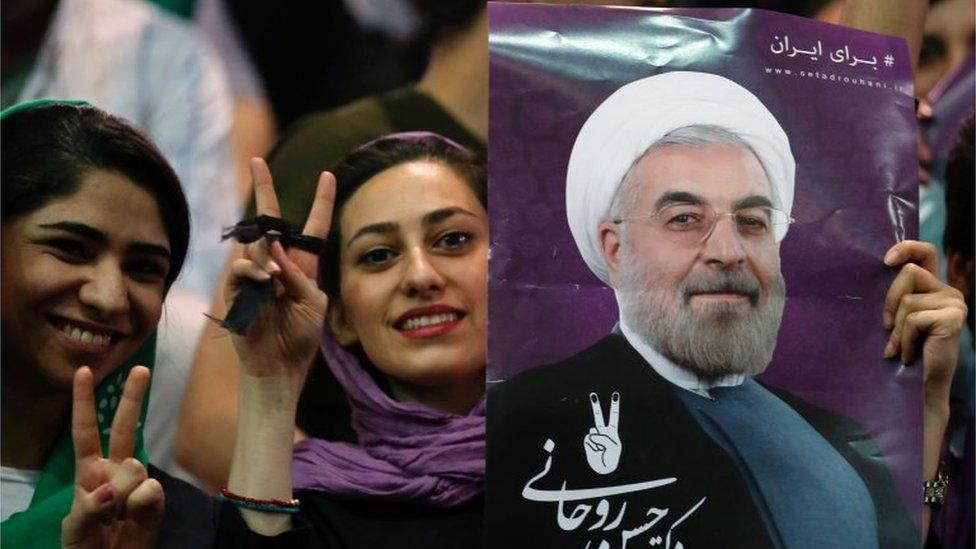
Hassan Rouhani is standing for a second term
Mr Hosseini is a board member of Iran Chamber of Commerce, Industries and Mines and the founder of the country's oil products export union.
He says a large group of private sector executives have come together to support Mr Rouhani.
"His government has given the society hope with lifting sanctions, increasing growth and tourism, attracting foreign investment and should be confident in this race," Mr Hosseini says.
But the choice for some young Iranians like Ali Saeedi is not crystal-clear.
"All I care about is that the property market moves. The real contenders are the lawyer [Hassan Rouhani], the cleric [Ebrahim Raisi] and the mayor [Mohammad Baqer Qalibaf]," he says.
"I may vote for the mayor, but the cleric will win!"
- Published28 April 2017
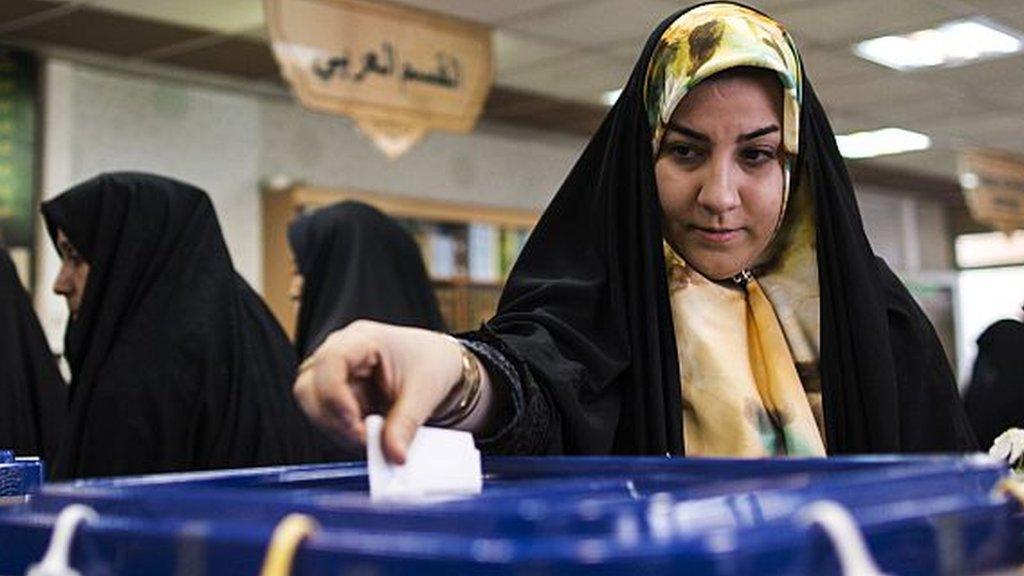
- Published18 May 2017
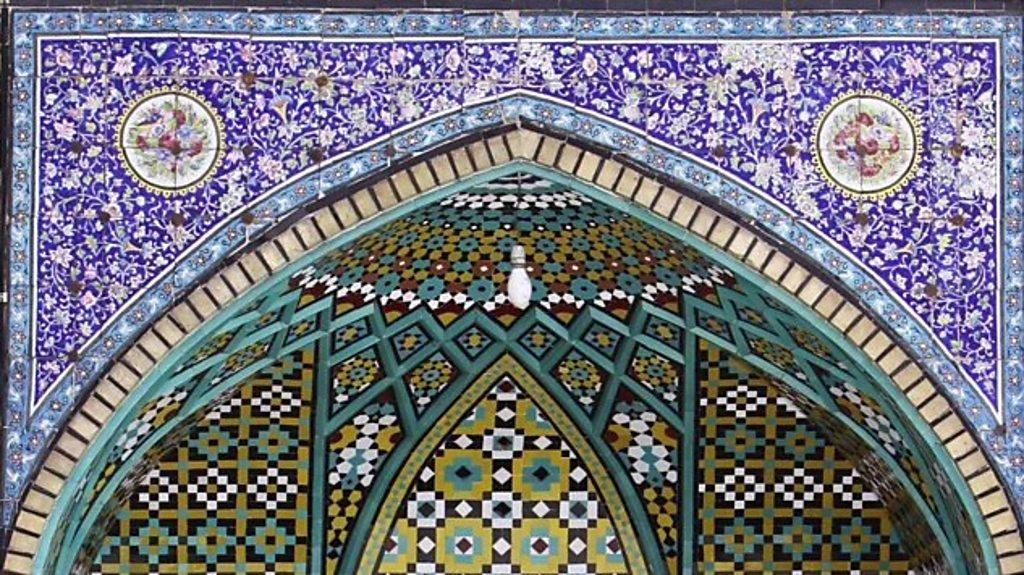
- Published16 May 2017
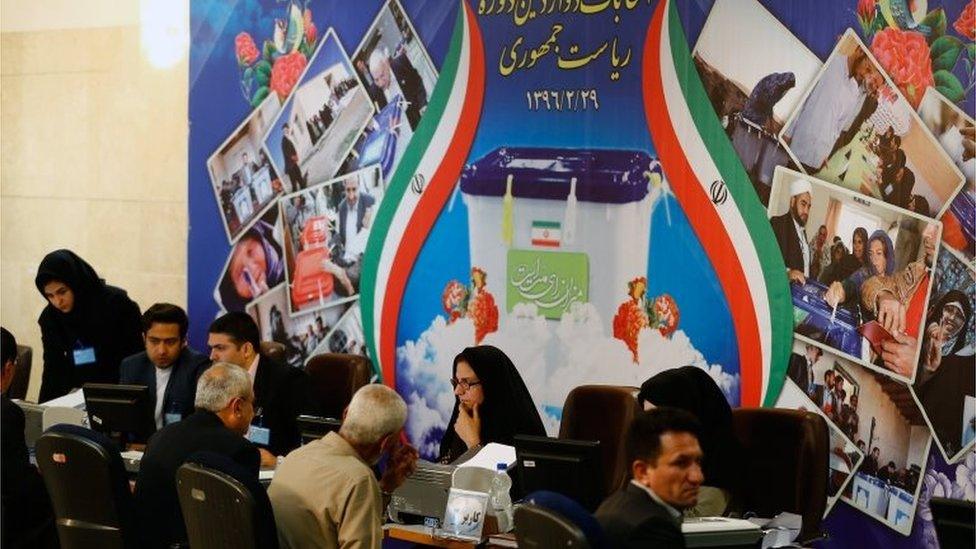
- Published14 October 2024
